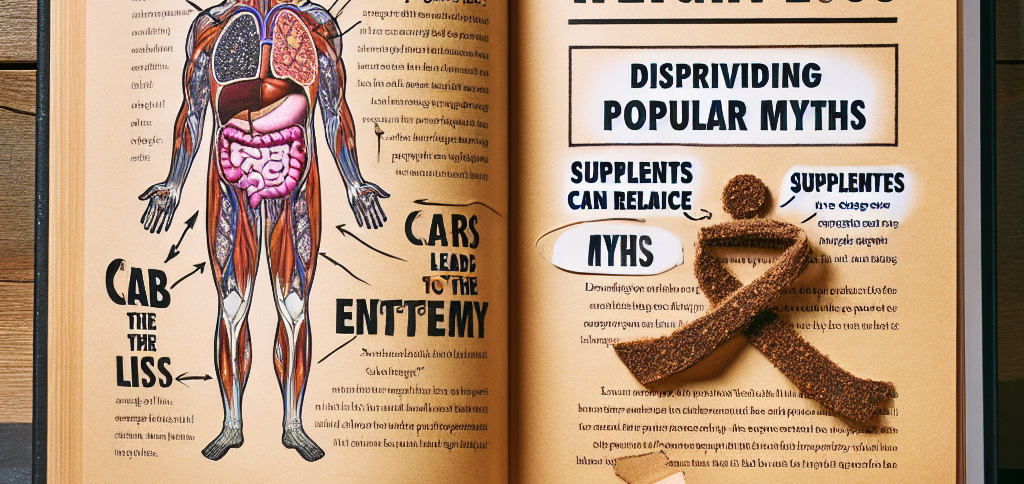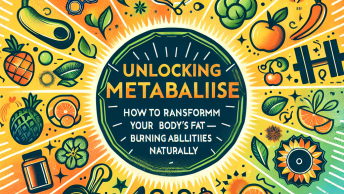10 Common Fat Loss Myths Debunked and Facts Revealed
In the quest for a healthier body, the world of fat loss is rife with myths and misconceptions. With so much information swirling around, it can be difficult to separate fact from fiction. But understanding what’s true is crucial for achieving effective and sustainable weight management. In this article, we will examine ten common fat loss myths and reveal the truths behind them. Our goal is to provide you with accurate information that can guide you to better health decisions.
1. Myth: Spot Reduction Works
Fact: The idea that you can lose fat from a specific part of your body by targeting it with exercises is a persistent myth. While exercising specific areas can strengthen muscles, fat loss generally occurs uniformly across the body, dictated by genetics and overall body composition changes through diet and exercise.
2. Myth: Eating Fat Makes You Fat
Fact: Not all fats are created equal. Healthy fats, like those found in avocados, nuts, and olive oil, are essential for the body’s functions and can even aid in fat loss. They help regulate hunger and provide long-lasting energy. The real culprits are trans fats and excessive saturated fats, which should be consumed in moderation.
3. Myth: Skipping Meals is Effective for Fat Loss
Fact: Skipping meals can backfire by slowing metabolism and increasing hunger pangs, leading to overeating later. Instead of cutting meals, focus on balanced meals that contain a mix of proteins, carbs, and fats. Eating smaller, more frequent meals can help sustain energy levels and prevent binge eating.
4. Myth: Carbs are the Enemy
Fact: It’s not necessary to eliminate carbohydrates completely for fat loss. Carbs serve as the body’s primary energy source. The key is choosing whole grains and complex carbohydrates over refined sugars and processed carbs, which can spike insulin levels and contribute to fat storage.
5. Myth: All Calories Are Equal
Fact: The concept of "calories in vs. calories out" suggests that the source of calories doesn’t matter, but this is misleading. While calorie quantity impacts weight, the quality influences how our bodies process food. Nutrient-rich foods provide vitamins and energy, whereas empty calories from sugary or processed snacks do little beyond filling calorie quotas.
6. Myth: Cardio is Sufficient for Fat Loss
Fact: While cardio exercises can help burn calories, relying solely on them may not yield optimal fat loss results. Strength training is crucial as it builds muscle mass, which increases resting metabolic rate, allowing you to burn more calories even at rest. A combination of cardio and strength training is most effective.
7. Myth: Diet Pills are a Magic Solution
Fact: No pill can replace healthy lifestyle habits. Many diet pills are not FDA-approved and can have adverse effects. Instead, focus on a balanced diet and regular exercise. If you’re looking for evidence-based weight management strategies, you may want to Click Here to learn more.
8. Myth: You Should Avoid Eating Late at Night
Fact: The body does not store fat based purely on the clock. What matters is the total caloric intake and expenditure over time. However, late-night eating can lead to poor food choices and mindless eating due to fatigue or stress. If managed well, the timing has lesser impact than previously thought.
9. Myth: Detox Diets Are Necessary for Fat Loss
Fact: The notion of detox diets as essential for weight loss is unfounded. The liver and kidneys perform detoxification admirably without special diets. While certain detox diets might temporarily reduce weight due to caloric restriction, they often lack sustainability and essential nutrients.
10. Myth: Supplements Alone Can Boost Metabolism
Fact: Supplements that claim to boost metabolism often lack scientific backing. While certain nutrients and compounds might have small effects on metabolism, they are not substitutes for the accumulated benefits of regular exercise and a balanced diet. Drinking water, consuming smaller meals, and full body workouts are proven ways to enhance metabolic rate.
Additional Thoughts:
While debunking myths is essential, understanding that fat loss is a personalized journey cannot be overstated. Factors such as genetics, lifestyle, and personal preferences will all play a role in designing an effective strategy. Information is power, and equipping yourself with the truths of fat loss will better enable you to navigate the plethora of advice available today.
Conclusion:
Armed with factual insights, you can craft a more effective and sustainable fat loss strategy that suits your unique needs. The road to health and fitness is not about drastic changes, but rather adopting habits that promote balance and wellness. Remember, the body you work towards is not just about aesthetics; it’s about feeling your best and supporting a long, active life.






